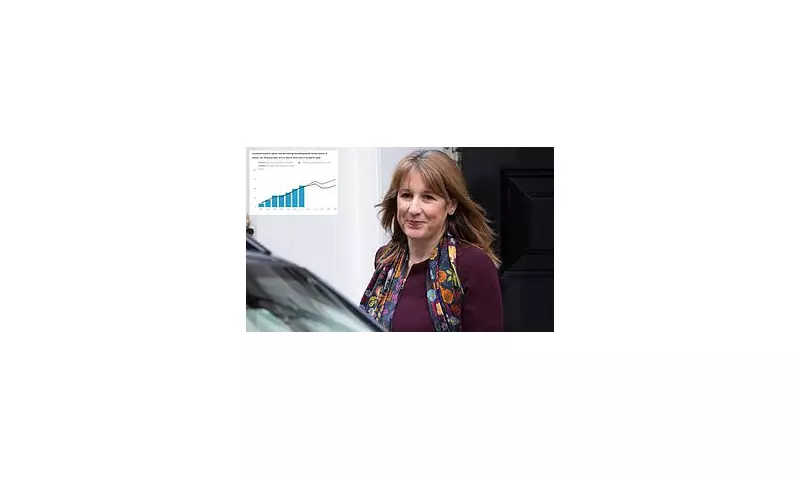
Chancellor Rachel Reeves has been handed a major fiscal challenge just days before she is due to deliver her crucial Autumn Budget, as new data reveals Government borrowing soared higher than economists predicted.
October's Borrowing Shock
The Office for National Statistics delivered sobering news, showing that public sector borrowing reached £17.4 billion in October. While this represented a reduction of £1.8 billion compared to the same month last year, it marked the third highest October borrowing figure since records began.
More alarmingly for the Treasury, the actual borrowing substantially exceeded forecasts. Most economists had anticipated approximately £15 billion, while the independent Office for Budget Responsibility had projected a lower figure of £14.4 billion.
Worsening Fiscal Picture
The broader financial landscape appears even more concerning. Total borrowing for the financial year to date stands at £116.8 billion – a significant increase that's £9 billion higher than the same period last year and nearly £10 billion above the OBR's March forecasts.
This developing situation creates a multi-billion pound hole in the public finances that the Chancellor must address when she presents her Budget on 26 November. Despite recently abandoning controversial plans to increase income tax, Ms Reeves is still expected to unveil what political commentators describe as a 'smorgasbord' of new levies in an urgent attempt to raise government revenue.
Political and Expert Reactions
Shadow chancellor Sir Mel Stride seized upon the figures to demand spending restraint. 'Borrowing so far this year has been the highest on record outside the pandemic,' he stated. 'If Labour had any backbone, they would control spending to avoid tax rises next week.'
Economist Nick Ridpath from the Institute for Fiscal Studies offered measured analysis, noting that Government borrowing has exceeded OBR forecasts by around £10 billion so far this year. He attributed this overshoot to 'lower-than-expected tax receipts and higher-than-expected borrowing by councils and other bodies outside of central government control.'
Mr Ridpath cautioned that operating with 'minimal fiscal margin for error is risky' and suggested the Chancellor might 'sensibly take steps to increase her so-called fiscal headroom' in next week's Budget announcement.
Treasury minister James Murray defended the government's approach, emphasising that the Budget would outline plans to 'cut debt'. He highlighted the concerning reality that 'we spend £1 in every £10 of taxpayer money on the interest of our national debt,' arguing this money should instead fund essential services like schools, hospitals, and police.
Despite the challenging figures, ONS chief economist Grant Fitzner noted some positive elements, explaining that while spending on public services and benefits increased compared to last October, this was 'more than offset by increased receipts from taxes and National Insurance contributions.'





